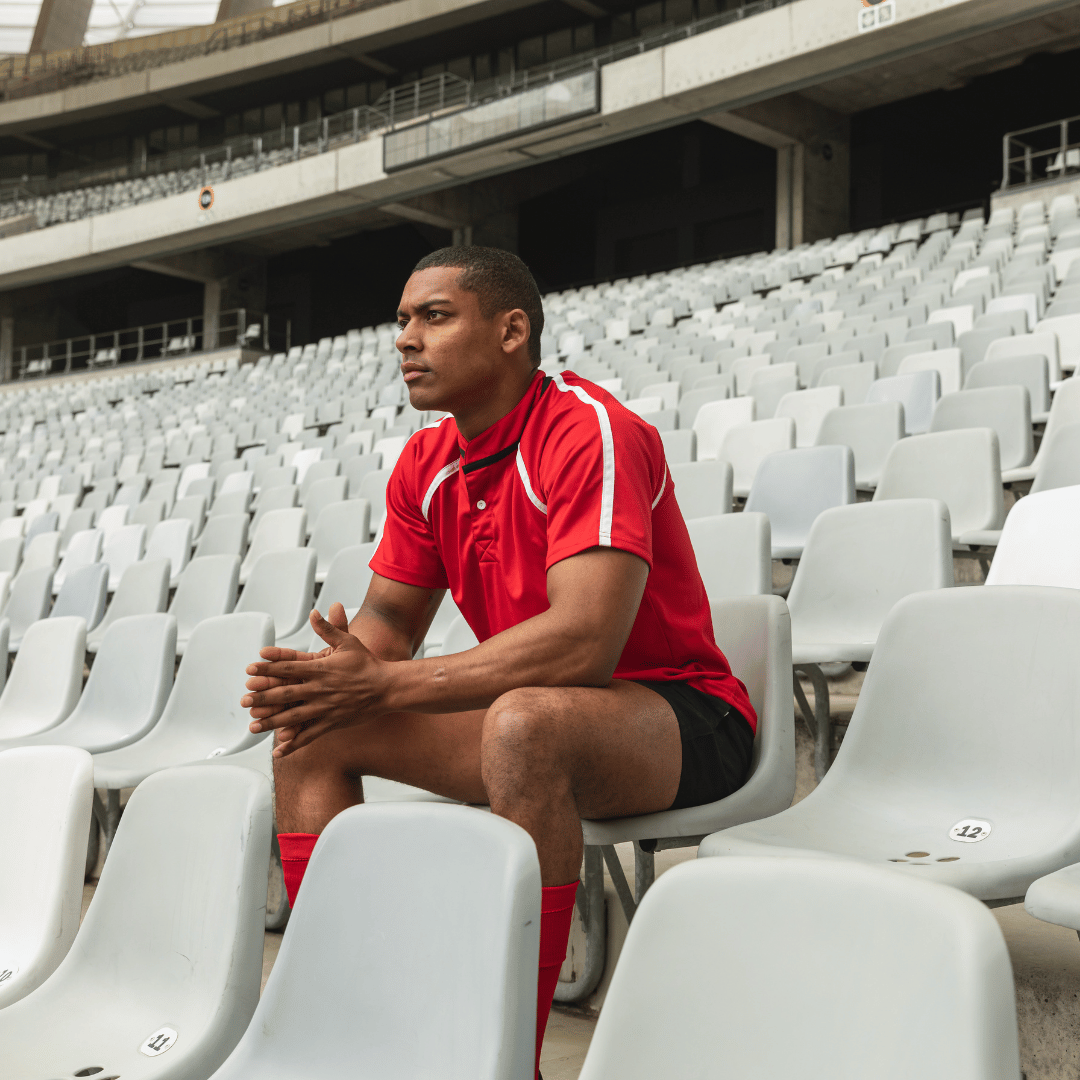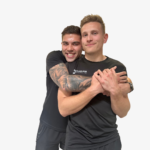
The importance of friendship and support when injury puts you on the sidelines
1 November 2023
Luke Denham
Clinic Lead Practitioner
A personal blog from Luke, for Men’s Health Awareness Month
Physical and mental health is always important, irrespective of the time of year, but November has become an important month for recognising men’s health. The Movember Movement is a campaign marking Men’s Mental health Awareness Month, and encourages engagement in activities to raise awareness about men’s physical and mental health – oh, and to grow moustaches! With this in mind, I would like to share a personal struggle I have faced this year, and how I’m dealing with it.
I am normally well into my rugby season by November, but due to a reoccurring shoulder injury in May, August and again in October, I have had a very frustrating start to the season. I sprained the acromioclavicular joint in my shoulder, and I’ve spent the entire summer trying to fix myself ahead of the new rugby season in September. Despite undergoing extensive rehab, and feeling in a very good place, my first warmup game of the season saw me re-injure the same shoulder – leaving me unable to play and feeling quite frustrated.
I went through the whole process again, whilst also sourcing imaging alongside my rehab programme to understand my pain, and I managed to get myself to a good place. I got the all-clear from my x-rays and ultrasound scans and felt ready to return, but on the penultimate training session I fell awkwardly in training and injured the same shoulder, again. Following an assessment it was clear I was back to square one.
Frustrated, upset and angry are a few words that come close to describing how I was feeling about the situation!
I’ve taken several knocks and bumps over the years, but never in the first game of the season, and being unavailable for selection has left me feeling a bit lost. I appreciate that this may seem slightly insignificant to some, especially with some of the struggles that we see people facing every day and what is going on in the world right now, but for me rugby is my outlet – both physically and mentally, and it is something I am missing.
However, I am still able to train and go to the gym, so this helps to keep my fitness up and I still use rugby as my outlet. I approached my club and offered to help the medical team on gameday. Being able to support my team and be in the mix on matchdays gives me a sense of belonging and a role within the team. Whilst it isn’t the same as playing, I feel as though I’m not completely missing out.
In my role as a sport therapist I regularly work with patients and athletes who are suffering an injury that keeps them away from what they love doing. They may not even know quite how much they love their pastime until they can’t do it as usual, and they find themselves feeling lost, out of touch with their friends and teammates, and susceptible to depression. Supporting them through this and assuring them that it’s totally okay not to be okay and helping them find a way through is part of the role that I love. So, I have had to deploy some of my own coping mechanisms and strategies to see me through, and I am gaining valuable insight into the mind of the injured patient and athlete.
Reach out, lean on those around you, and talk about how you are feeling
It is important to reach out to friends, teammates, or family – leaning on those around you is so important. Those around you are not just there for the good times, they are there to help when you are facing a difficult time. Reach out to them, talk to them about how you are feeling, and you will be amazed at how this can empower you. This is something that I have been doing myself – I have still been going to training, I’ve made myself go to the gym and invest in my rehab programme, and I’m so lucky to be part of a team at work that make me feel great, and who ‘get me’.
One of the most decorated Olympians in history, Michael Phelps, spoke openly about his struggles with mental health, explaining the pressures he faced daily and how reaching out saved him.
“For those who are struggling with mental health, know you’re not alone. There are days where I want to curl up into a ball and sit in the corner, but it’s just taking a little step forward, taking a deep breath from time to time. It really helps.”
Michael Phelps.
He went on to talk about how things like therapy apps, and engaging in exercise, play a huge part in helping him manage his mental health. This highlights how our mental and physical health are linked and need to be looked after. Now, most of us may never compete at the Olympics, let alone win multiple gold medals, but what you feel is important, reaching out is crucial, and accessing support networks is vital.
How we can help you
As an injury clinic we can help you to overcome your physical injuries, but we are also here to help you cope with the negative feelings when your life shifts. We will always listen to your worries and concerns, help you find alternate ways of exercising, and adapt your training to incorporate your rehab. We are not mental health professionals, but a large part of our role is to help you manage and deal with pain, and everything that comes with that. All the team have experienced our fair share of injuries, we understand and appreciate what you might be feeling, so talk to us about how you are coping, and we will offer as much help as we can.
Further support and resources
Nationwide
Mind
https://www.mind.org.uk/need-urgent-help/using-this-tool/
Samaritans
https://www.samaritans.org/
Movember
https://uk.movember.com/
Andy’s Man Club
https://www.facebook.com/andysmanclub
Local to us here in Biggleswade, Beds
For Men to Talk
https://formentotalk.co.uk/physicalmeetingbw/
Elliot Smith, Sport Psychologist
https://elliotsmithsportpsychology.com/
Songbird Hypnotherapy
https://songbirdhypnotherapy.co.uk/

